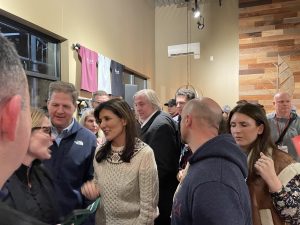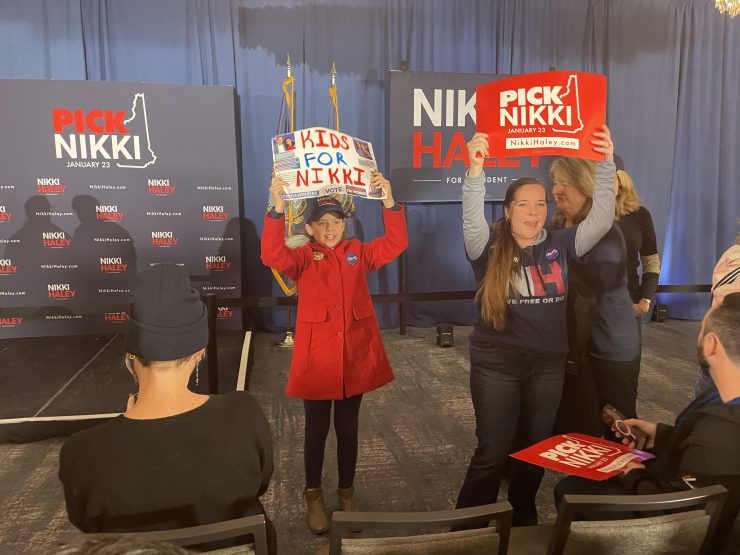MANCHESTER, N.H. — Aidan McGinley, 23, is a carpenter from Lincoln, N.H., and a political independent. Jake Powers, 17, is a high school student from South Hampton and a self-described “moderate conservative” who will be eligible to vote in the 2024 general election. Leah Brody, 17, is a liberal soon-to-be voter from Westchester, N.Y.
McGinley, Powers and Brody represent divergent factions of the American electorate, yet they share an overarching political affinity: Each is open to casting a ballot for former United Nations Ambassador Nikki Haley in their state’s Republican primary on Tuesday or the general election in November.
“I think I’ve tried to be open-minded throughout this process,” Brody said. “I think I have learned more about Nikki Haley’s beliefs, and there are a few things I agree with her on.”

The Haley campaign managed to outlast a field of 13 fellow Republicans mounting a challenge to former president Donald Trump as he seeks to claim the party nomination for a third consecutive election cycle.
Despite a third-place finish in the Iowa caucuses, coming in behind Trump and Florida Gov. Ron DeSantis — who suspended his campaign this week — Haley continued on in the race, betting her candidacy on a strong showing in the first-in-the-nation-primary state of New Hampshire.
Though still trailing Trump, a series of favorable polls and a high-power endorsement from Gov. Chris Sununu gave Haley a spurt of momentum she hopes will carry her to an upset victory over her party’s standard bearer.
Haley has seen a substantial increase in support across New Hampshire, partly thanks to the state’s higher concentration of college-educated voters, most of whom backed her candidacy in Iowa. She also is likely to benefit from an open-primary structure, which allows independents to vote in partisan primaries.
In order to win in New Hampshire and subsequent primary contests, as well as the general election in November, Haley will need to stitch together a coalition of conservatives, moderate liberals and unaffiliated voters to overcome both the Trump firewall on her right flank and a begrudgingly united Democratic party machine behind incumbent president Joe Biden.
Though it is yet to be determined if Haley will win a majority of young voters in her primary race, among those currently backing her campaign, she has managed to draw support from across the political spectrum.
In young, anti-Trump conservative circles, Haley represents the last hope for a return to the Reagan-Bush era of Republican politics, galvanizing a wing of the party that has been largely driven out in recent years.
“I think she’s a much better alternative, and if she was in a general election with Joe Biden, I think she would be way more competitive than Donald Trump,” Powers said. “I just don’t like Trump.”

Among Independents such as McGinley, Haley is not a first-choice candidate, but appears to be a more palatable candidate on social issues, such as abortion rights, leading him to weigh voting for her as a means to block Trump, whom he sees as too extreme.
“At the very least, I don’t think Nikki Haley would be winding back the clock the way that someone like Trump would,” McGinley said. “They’re literally turning things back half a century, and they’re clear about it, that’s what they want.”
For Brody — who said she would consider voting for Haley in a hypothetical match-up against Biden — the ambassador presents a generational shift she yearns for despite her liberal-leaning politics.
If Haley were to earn her vote, Brody said, her ballot would be cast less out of enthusiasm for her and more from concerns regarding the president’s age of 81 as he seeks a second term in office.
“I think the problem is it really is kind of a battle of the lesser of two evils,” Brody said. “I would consider the lesser evil to be Biden, but to me, I’m really looking for a younger candidate.”















Add comment